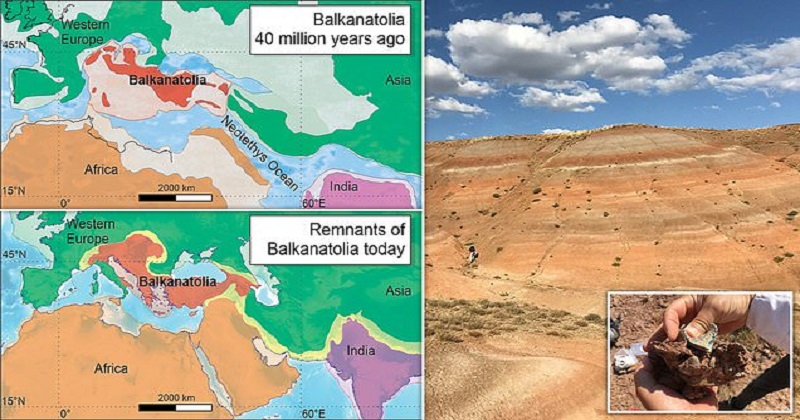
Researchers have named a low-lying continent that existed 40 million years ago between Asia, Africa, and Europe as ‘Balkanatolia’. According to the experts, this continent was home to exotic species and may have served as a gateway for animals from Asia to enter southern Europe.
According to a study published in Earth-Science Reviews, sea levels plummeted roughly 34 million years ago, transforming the lost continent into a gateway or land bridge connecting Asia to Europe and vice versa.
Animals endemic to Western Europe perished in large numbers during the end of the Eocene period and were replaced by new Asian mammals. The Grande Coupure is the name given to the unexpected extinction catastrophe.
According to new fossil findings in the Balkans, ‘a special bioregion’ may have been responsible for the colonisation of southeastern Europe by Asian animals, which occurred 5 to 10 million years before the Grande Coupure extinction event.
The researchers looked at fossils from all known locations across Anatolia, Asia’s westernmost protrusion, and the modern-day Balkan peninsula. The vanished continent of ‘Balkanatolia’, found by a team from the French National Centre for Scientific Research, served as a transit point between Asia and western Europe. The isolated continent evolved into a land bridge connecting the two bigger continents.
Also Read: Studies suggest that a healthy diet could add 10 years to your life
The continent was an independent archipelago 50 years ago, but owing to events such as lowering sea levels, expanding Antarctic ice sheets, and geological processes, it became joined to Europe 40-34 million years ago.
It should be emphasised that the evaluation is based on the conclusions of a single team’s investigation of fossil records, and the extent of knowledge of the geological shifts that formed the continent is still unknown.

Post Your Comments